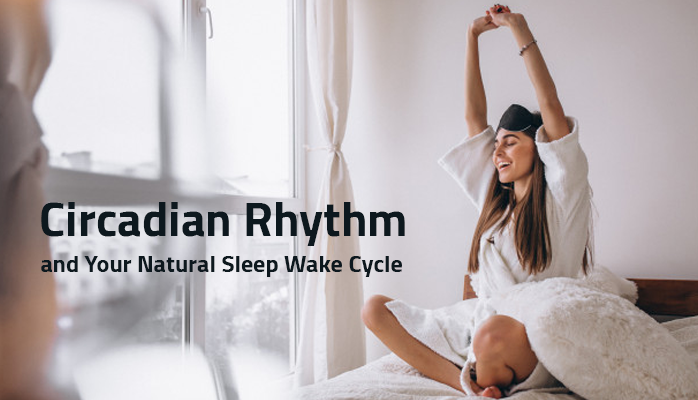What is Your Sleep Wake Cycle
Your circadian rhythm is your biological clock. It runs in the background of your brain and manages and regulates your cycle of sleep and wakefulness, also known as your sleep-wake cycle.
It’s an important term to understand when trying to understand how and why your body/brain operates the way it does – understanding which can be critical to getting a good night’s rest.
Your sleep-wake cycle determines when you wake up and when you go to sleep and then wake up. Ideally, your circadian rhythm is a 24-hour cycle because this is the cycle modern society is based on, but not everybody functions this way. Your natural sleep cycle may be a 26 hours, or 22 hours.
Also, you biological clock may be “shifted” to earlier or later in the day, hence the terms night owl and morning lark. It’s important to note that research has shown that 40-70 percent of your biological clock is genetic, meaning that while you may be able to shift your clock an hour or two, it may be unrealistic to simply adopt a new sleep/wake cycle.
Sleep-Wake Cycle Shifted Earlier
A lark, or morning person, is someone whose biological clock is shifted to earlier in the day, meaning that they are someone who:
- Naturally becomes tired early in the evening
- Naturally wakes up early in the morning
- Experiences peak brain activity in the morning
Benefits of Being a Morning Person
Morning people may be less likely to experience insomnia and other circadian rhythm disorders because many jobs and other lifestyle factors operate closer to morning lark schedules rather than night own schedules.
Interestingly, morning larks perform better on cognitive tests in the morning than night owls who perform those same tests in the evenings.
Sleep-Wake Cycle Shifted Later
A night owl is someone whose biological clock is naturally shifted later in the day, meaning that they are a person who:
- Naturally becomes tired much later in the night, or early morning
- Naturally wakes up later in the morning
- Has best brain activity around 8pm,
A night owl may adjust easier to things like certain shift work, later jobs, and so on.
Challenges of Being a Night Owl
However, being a night owl can be extremely difficult for jobs or school that involve waking up early and may experience:
- Insomnia
- Circadian rhythm disorders
- Sleep deprivation
Some become night owls by conditioning, or by necessity, such as if you have a partner who is naturally a night owl and your sleep cycle shifts to be closer to theirs.
Anthropological Roots of Sleep-Wake Cycles
Our natural cycles likely have anthropological roots. A sleep monitoring study that was done on the Hadza people of Tanzania, whose lifestyle is the same as it has been for thousands of years, monitored the group of 20 Hadza people for 20 days and nights. Their findings were that:
- Someone was awake for almost all of the time
- Over 200 hours of study, everyone was asleep for only a total of 18 minutes
- Having a biological-clock diverse community was critical for survival, as someone is always on watch
As said earlier, about half or more of your biological clock is genetic. Based on the above study, you can owe your natural proclivity for being an earlier-riser or later-nighter to anthological history and genetics.
If you are worried that your sleep wake cycle is unnatural or causing a sleep disorder, please take this online sleep test:


